
Everything You Need to Know about 4k pc build with all the main components which will make your gaming computer to do easily all tasks on 4k.
Note: If you buy products from links on our site, we may earn a commission.
In today’s world of ever-advancing technology, the desire for a custom-built PC tailored to your specific needs and desires has never been more compelling. Whether you’re a dedicated gamer, a content creator, or someone who simply craves the best in visual and computing experiences, a custom 4K PC is the ultimate choice. The crystal-clear resolution, vibrant colors, and lightning-fast performance of 4K content have become the new gold standard in digital experiences, and building your own 4K PC allows you to immerse yourself in this world like never before.
However, embarking on a custom PC build can seem like a daunting task, especially when striving for the pinnacle of visual excellence and computational power. This step-by-step guide is here to demystify the process, making it accessible to both newcomers and seasoned PC enthusiasts. We’ll take you through the entire journey, from the initial planning and component selection to the final setup and maintenance of your 4K PC.
With the right guidance and a clear roadmap, you can unleash the full potential of 4K computing, enjoying breathtaking graphics, seamless multitasking, and a system that’s perfectly suited to your individual needs. So, let’s embark on this exciting adventure and learn how to create your own custom 4K PC, one step at a time.
Prepare to enter the realm of true high definition and vividly immersive visuals, as we guide you through a comprehensive exploration of your own custom 4K PC build. We’ll pull back the curtain, revealing how to get the most from your computing experience with enhanced pixel density and stunning detail.
In this walkthrough, we’ll hand-pick the best components for your potential 4K build while considering your budget and flavor of usage, be it content creation, gaming, or professional computing.
Understanding the Demand: The 4K Difference
4K or Ultra High Definition (UHD) offers a visual quality that’s four times the resolution of standard Full HD. Think of it as fitting in four Full HD displays into the same amount of space. The increasing prevalence and significance of 4K resolution in the world of digital content, displays, and consumer electronics. It may delve into the reasons behind the growing demand for 4K content, which offers four times the resolution of standard HD, providing sharper, more detailed visuals. The article might discuss how 4K technology impacts industries like television, gaming, and filmmaking, as well as the hardware and devices required to experience 4K content. Additionally, it could touch on the challenges and opportunities this advancement presents to both content creators and consumers.
Key 4K Attributes:
- Ultra-high pixel density for unparalleled clarity
- Superior picture quality with vivid color detail
- Ideal for gaming, video editing, and professional design work
The Brain of Your PC: A High-Performance Processor
A powerful CPU is particularly important for demanding applications like gaming, content creation, and 4K video editing, as it ensures smooth and efficient execution of these tasks. The article also discusses the importance of choosing the right CPU for your specific needs, considering factors such as clock speed, cores, threads, and compatibility with other components. In conclusion, it underscores the pivotal role a high-performance processor plays in unlocking the full potential of your PC, making it a vital component in any custom build or system upgrade. Even with the most cutting-edge GPU, your 4K journey might stumble if paired with a mediocre processor. Ensure you choose a CPU that will not bottleneck your system during high-demand tasks.
Recommended Choices:
- Intel Core Intel Core i7-13700K or Intel Core i9-12900K
- AMD Ryzen 7 5800X or Ryzen 9 5900X
1) Intel Core i9-12900K
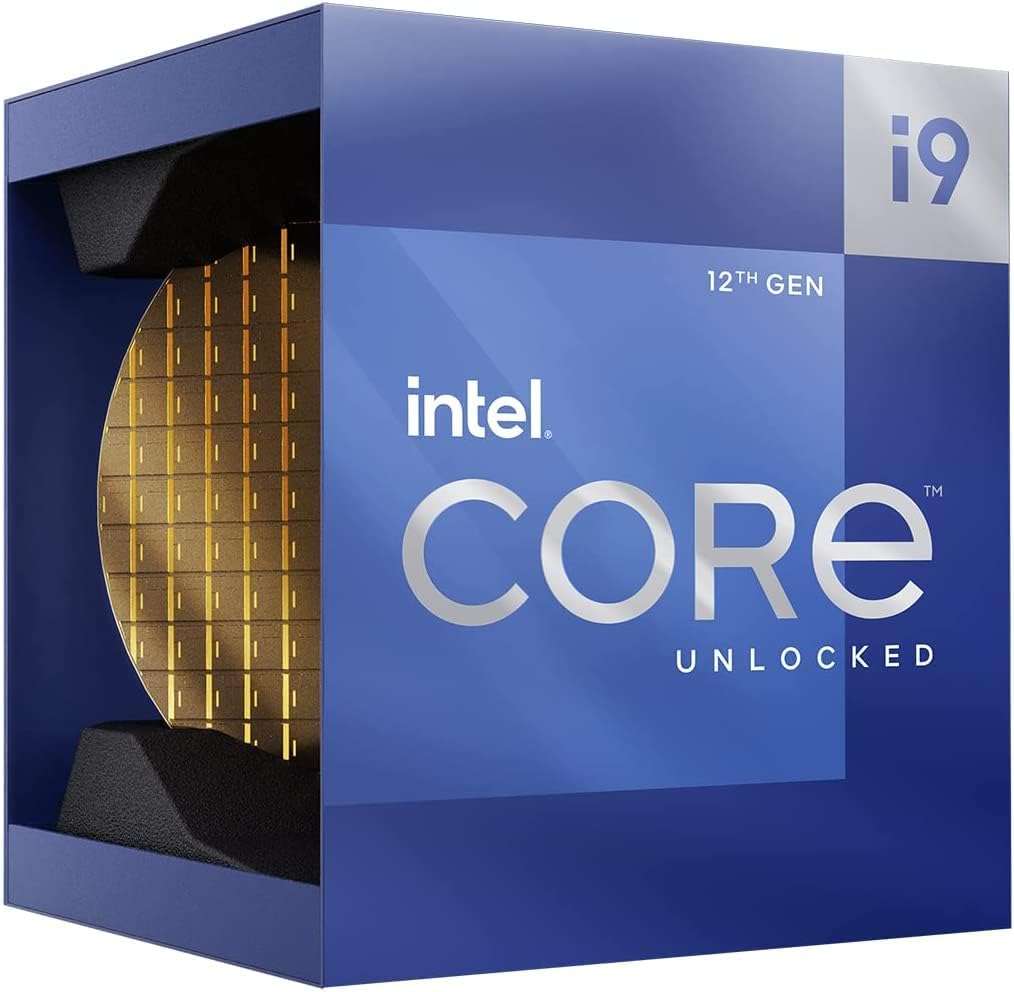
2) Intel Core i7-13700K
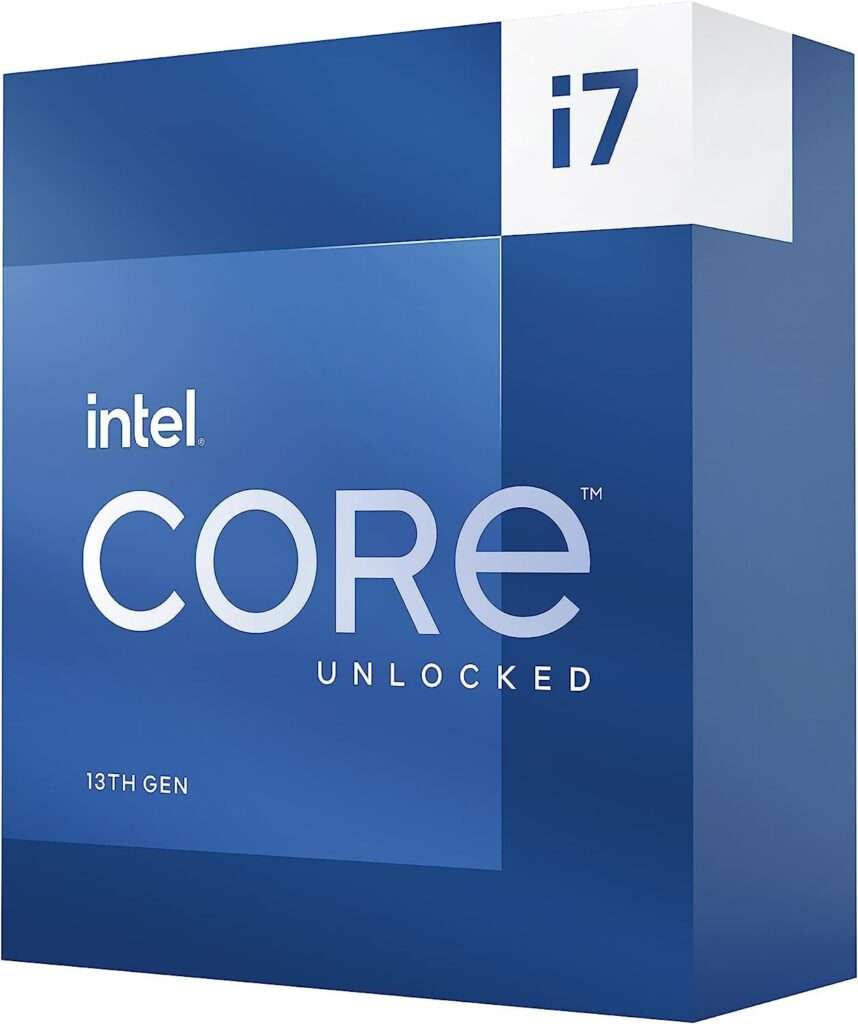
1) AMD Ryzen 7 5800X
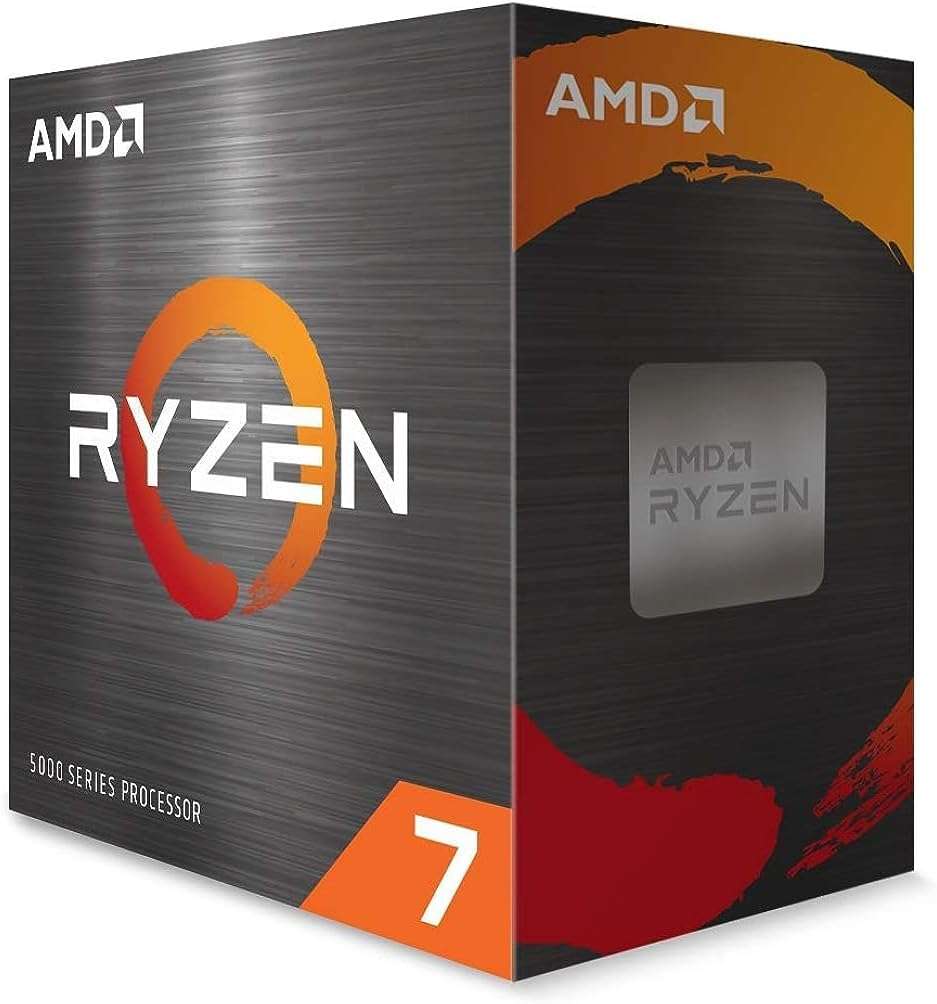
2) AMD Ryzen 9 5900X
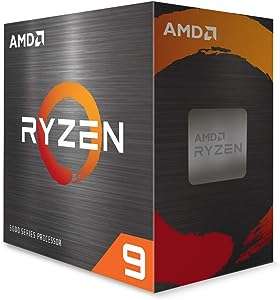
The Graphical Powerhouse: 4K-Ready Graphics Unit
A 4K-Ready Graphics Unit is the powerhouse behind immersive, high-resolution visual experiences on your PC. This article highlights the critical role of a powerful GPU in achieving stunning 4K graphics. It delves into the need for a GPU capable of handling the immense pixel count and graphical demands of 4K content, making it essential for gamers, video editors, and professionals in need of top-notch visuals. A dedicated GPU capable of rendering 4K content is non-negotiable. We’ll look at some which can handle 4K gaming, video editing, and professional applications. In conclusion, the article underscores the necessity of a 4K-ready graphics unit for achieving unparalleled visual quality, smoother gaming experiences, and efficient 4K content creation. It serves as a critical component in any high-end custom PC build or system upgrade.
Top Contenders:
- Nvidia RTX 3080 or RTX 3090 series
- AMD Radeon RX 6800 XT or RX 6900 XT series
1) ASUS ROG Strix NVIDIA GeForce RTX 3080
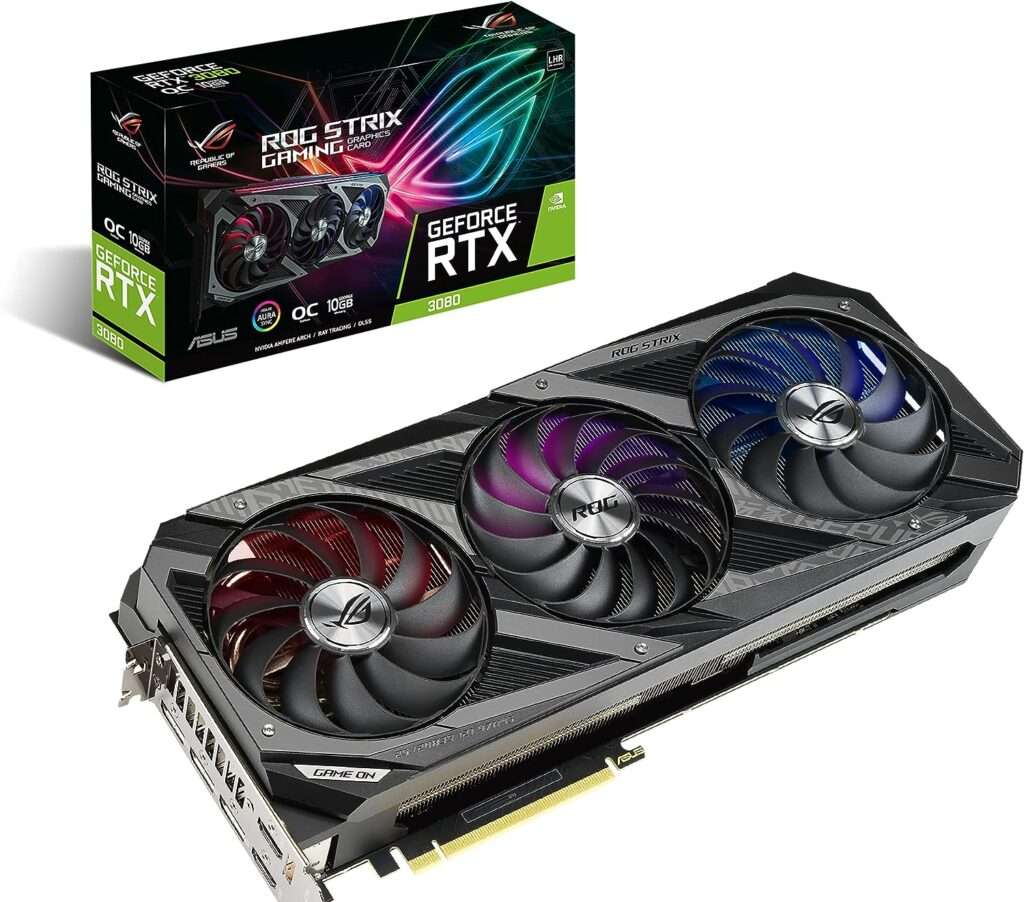
2) ASUS TUF Gaming NVIDIA GeForce RTX 3090 OC Edition
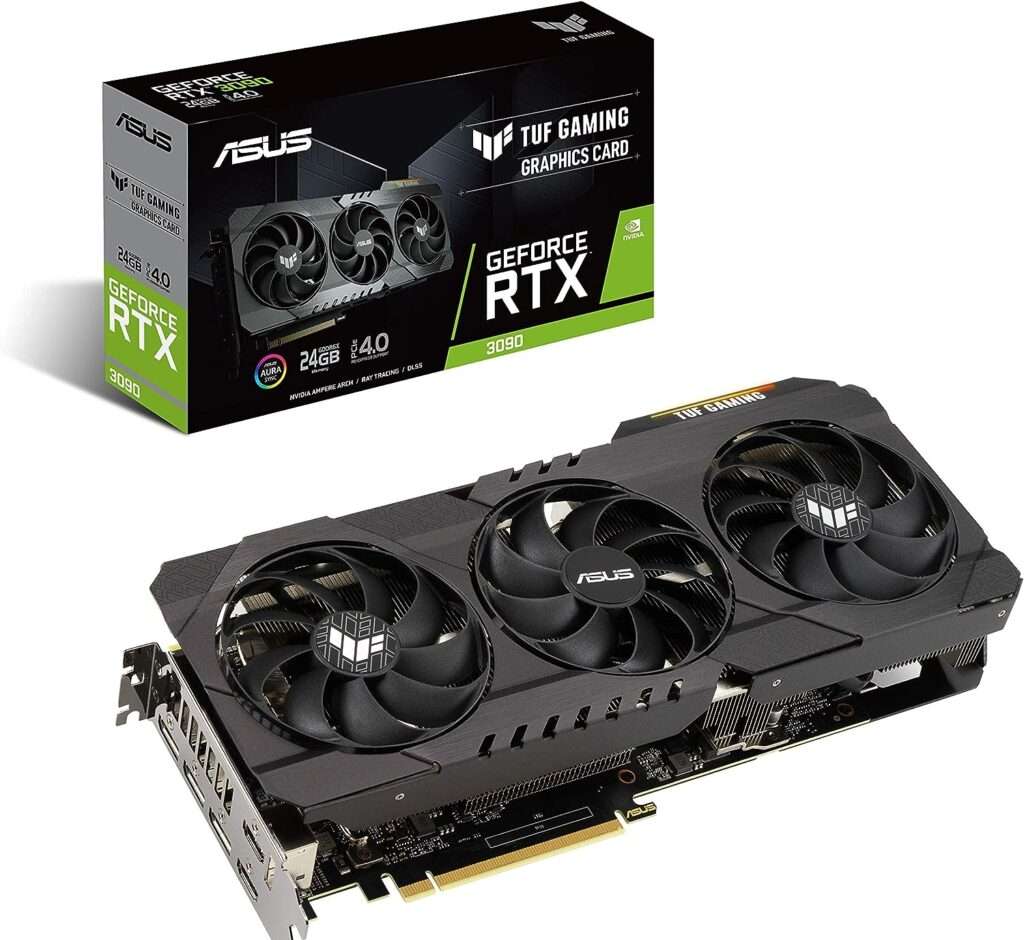
3 ) AMD Radeon RX 6900 XT Ultimate
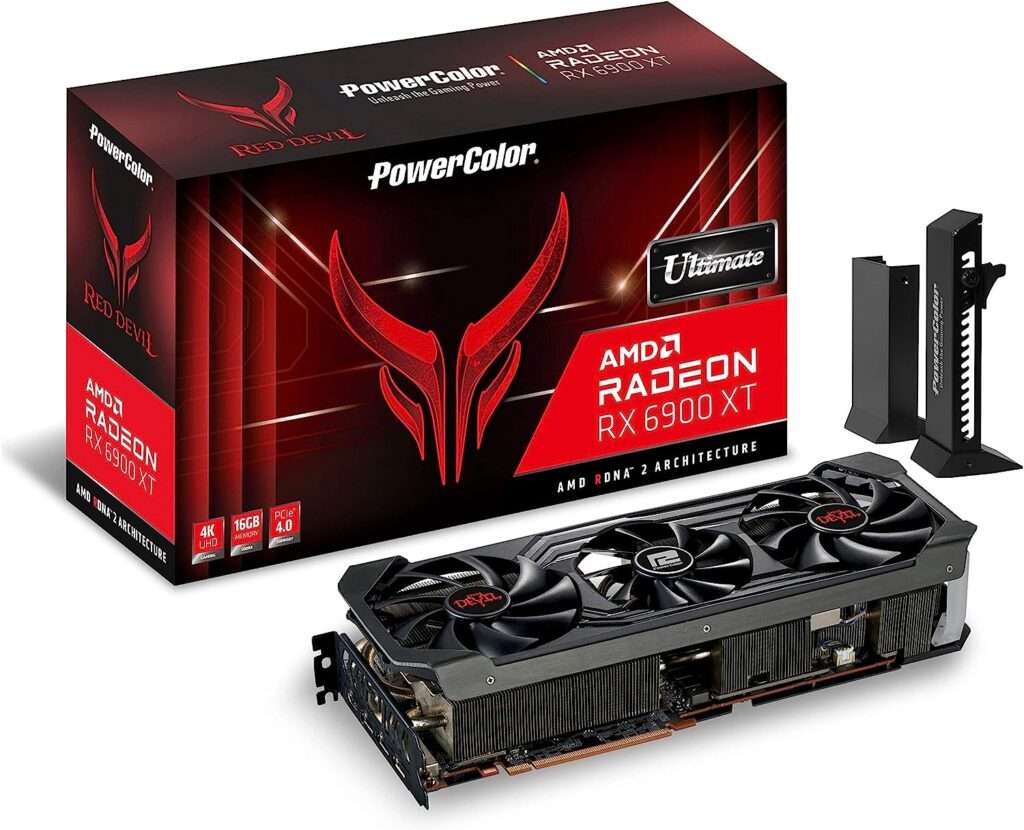
Setting the Foundation: Motherboard
Your motherboard connects all components and facilitates communication. Ensure it’s high-quality and compatible with your selected processor, GPU, and other peripherals.
Selecting the best motherboard for a 4K gaming PC depends on several factors, including your budget, processor choice, and specific requirements. As of my last knowledge update in January 2023, here are a few motherboards that were highly regarded for gaming PCs. Keep in mind that newer models may have been released since then, so it’s a good idea to check for the latest options and reviews. Motherboards are also heavily dependent on your CPU choice, so make sure the motherboard is compatible with your CPU.
- ASUS ROG Maximus XIII Hero: This motherboard is part of ASUS’s Republic of Gamers (ROG) lineup and is known for its top-tier performance and features. It’s suitable for Intel processors and offers excellent connectivity and overclocking options. Here you can check on Amazon.
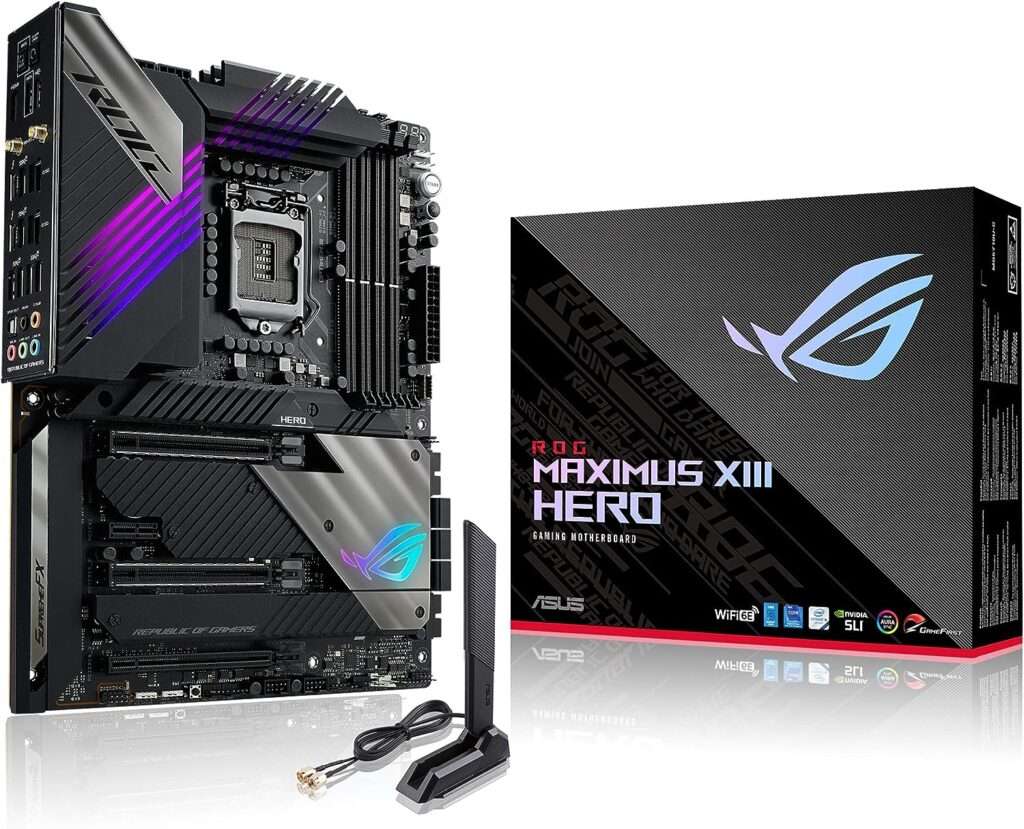
2. MSI MPG B550 Gaming Edge WiFi: If you prefer an AMD CPU, the MSI MPG B550 Gaming Edge WiFi is a solid choice. It’s compatible with Ryzen processors and offers good value for its feature set. The “B” series motherboards are more budget-friendly compared to the “X” series.
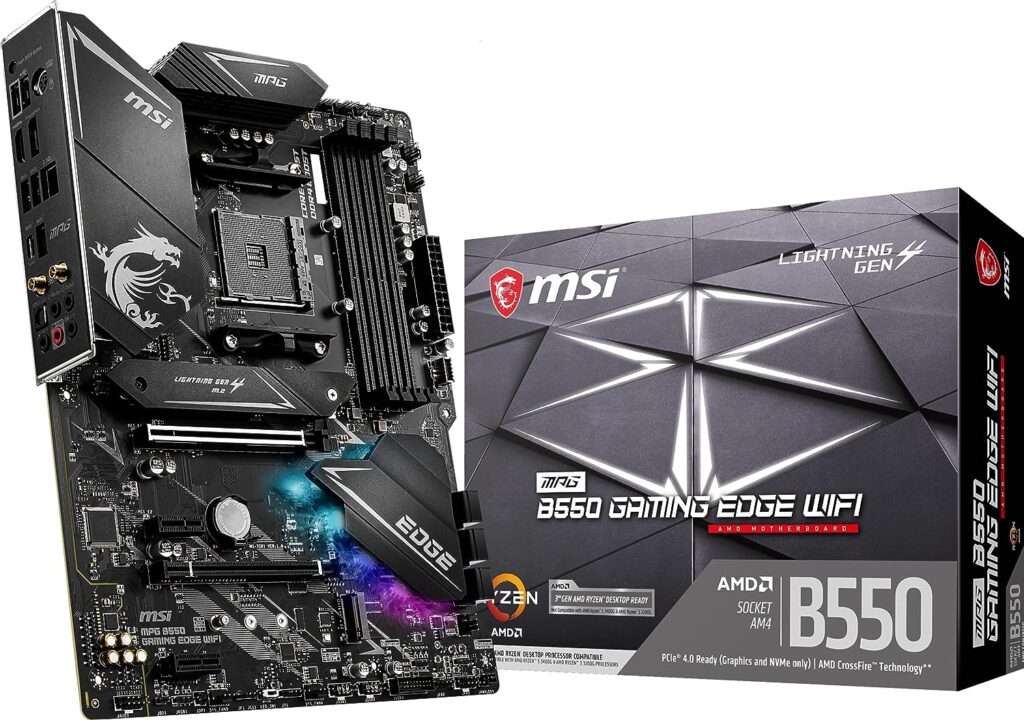
3. Gigabyte AORUS X570 Master: Another option for AMD users is the Gigabyte AORUS X570 Master. It’s packed with features and provides excellent performance. The X570 chipset is a good choice for high-end AMD gaming builds.
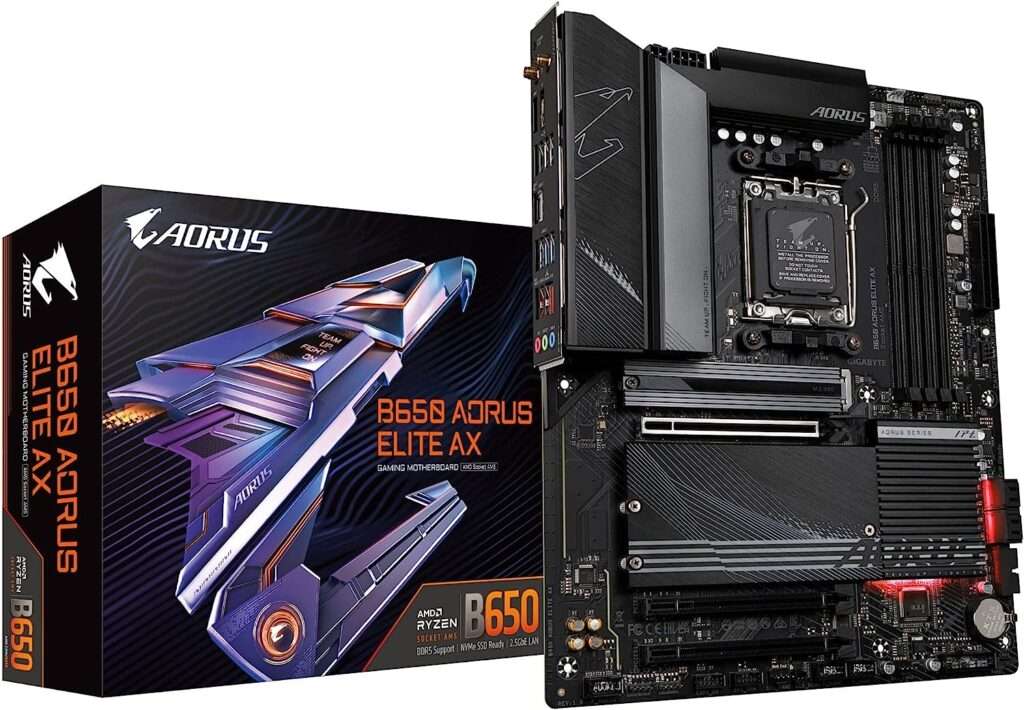
4. ASUS ROG Strix Z590-E: This motherboard is designed for Intel processors and is suitable for high-end gaming setups. It offers good connectivity options, including Wi-Fi 6E, and features like USB 3.2 Gen 2×2 for fast data transfer.
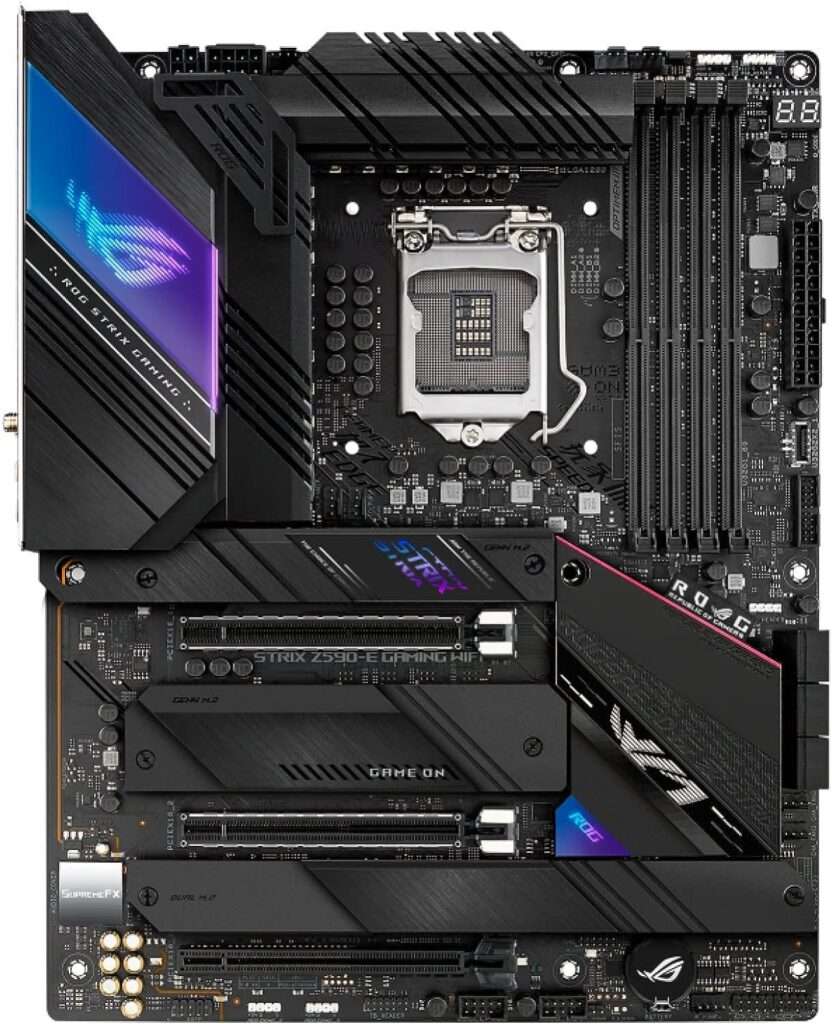
When choosing a motherboard for a 4K gaming PC, consider the following factors:
- Processor Compatibility: Ensure that the motherboard is compatible with your chosen CPU, whether it’s an Intel or AMD processor.
- Form Factor: Choose a motherboard size (ATX, Micro-ATX, Mini-ITX) that fits your PC case and build requirements.
- Connectivity: Look for plenty of USB ports, high-speed data transfer options (e.g., USB 3.2 Gen 2), and Wi-Fi if needed.
- PCIe Slots: Make sure there are enough PCIe slots for your GPU and any other expansion cards you plan to use.
- VRM Quality: If you plan to overclock, ensure that the motherboard has a robust VRM (Voltage Regulator Module) for stable power delivery.
- RAM Compatibility: Check if the motherboard supports the RAM type and speed you want to use.
- Features: Consider additional features like built-in Wi-Fi, RGB lighting, and overclocking tools based on your preferences.
- Brand : Look for reputable motherboard brands.
The Backbone of Your Build: RAM and Storage
For a smooth 4K experience, we recommend a minimum of 16GB RAM, with 32GB being optimal for demanding tasks. Likewise, fast storage solutions like SSDs can significantly boost your PC’s productivity and speed. These are the best rams you can get right now:
- Corsair Vengeance LPX: Corsair’s Vengeance LPX series is known for its reliability and performance. Look for a DDR4 kit with a high clock speed (e.g., 3200MHz or higher) and low latency for optimal gaming performance.
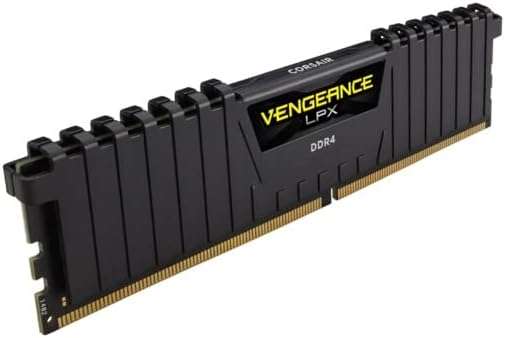
2. G.Skill Ripjaws V: G.Skill’s Ripjaws V series offers a range of options with various clock speeds and capacities. They are popular among gamers and offer good value for the performance.
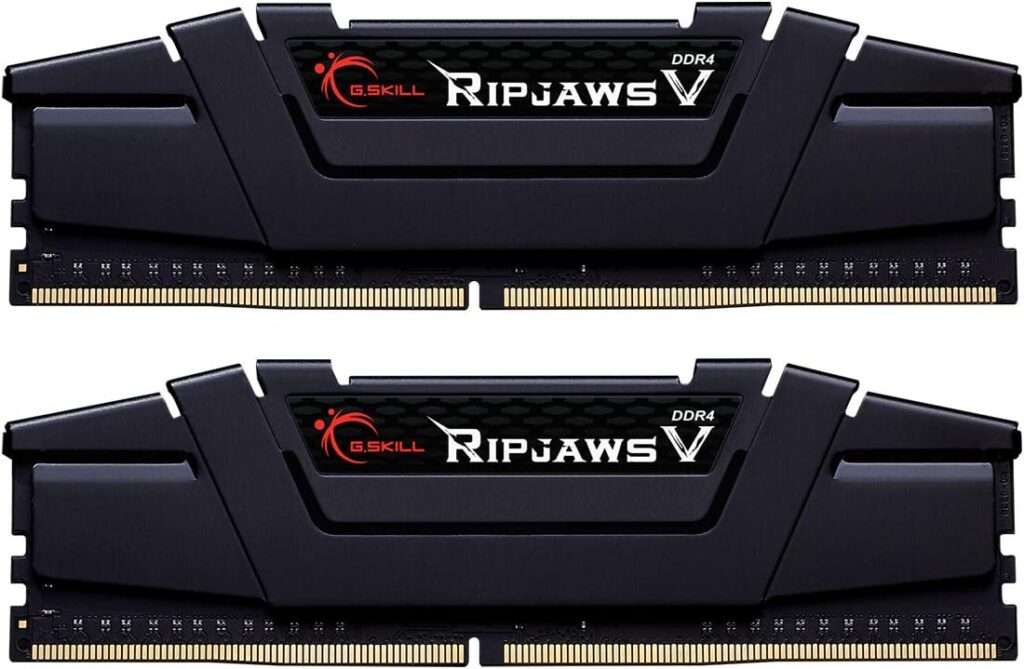
3. Team Group T-Force Xtreem: Team Group’s T-Force Xtreem memory kits are designed for high performance. Look for high-speed DDR4 kits that provide low latency for fast gaming.

4. Kingston HyperX Predator: Kingston’s HyperX Predator series is a high-performance line of RAM known for its reliability and performance. These kits are designed for gamers and overclockers.
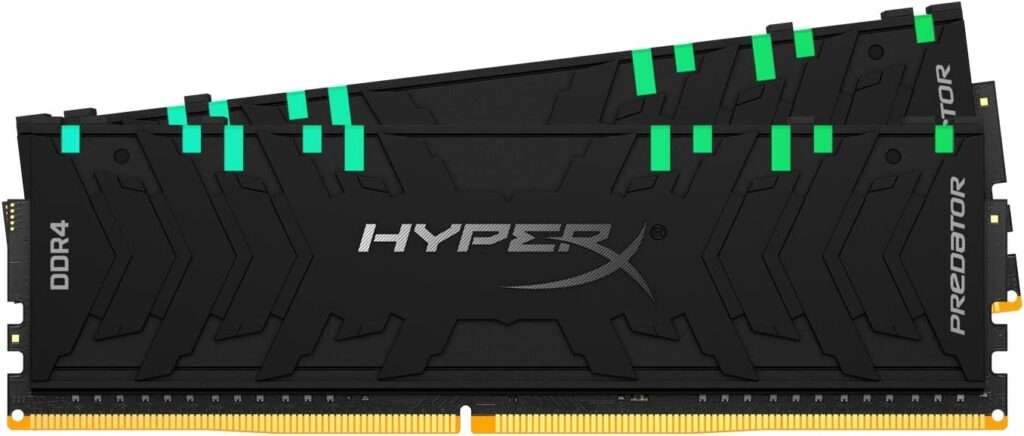
When choosing RAM for a 4K gaming PC, consider the following factors:
- Capacity: 16GB is the minimum for most gaming systems, but if you run multiple applications or do content creation alongside gaming, 32GB or more can be beneficial.
- Speed: Higher clock speeds (e.g., 3200MHz, 3600MHz, or faster) can improve gaming performance, especially with CPUs that benefit from faster RAM.
- CAS Latency (CL): Lower CAS latency values indicate faster response times. Look for RAM kits with lower CL values for better performance.
- Compatibility: Ensure that the RAM is compatible with your motherboard and CPU. Check your motherboard’s QVL (Qualified Vendor List) for compatibility.
- Aesthetics: Some RAM modules come with RGB lighting for those who want to customize the appearance of their gaming rig.
- Overclocking Potential: If you plan to overclock your RAM, consider kits designed for overclocking and check user reviews for their overclocking capabilities.
Advised Options:
- 16-32GB DDR4 RAM
- 1TB NVMe SSD for primary storage
- Additional HDD or SSD for bulk storage
Fueling Your Beast: Power Supply
Review your components’ power needs and ensure your PSU caters optimally. Overloading can lead to system instability or even component failure.
When selecting a power supply unit (PSU) for a gaming PC that requires a minimum of 750-850W and 80+ Bronze certification or higher, it’s crucial to consider not only the wattage but also the quality and reliability of the PSU. Here are a few recommended options as of my last knowledge update in January 2022:
- EVGA 850 B5, 80+ Bronze: This EVGA power supply offers 850W of power with 80+ Bronze efficiency. It’s known for its reliability and comes with a 5-year warranty.
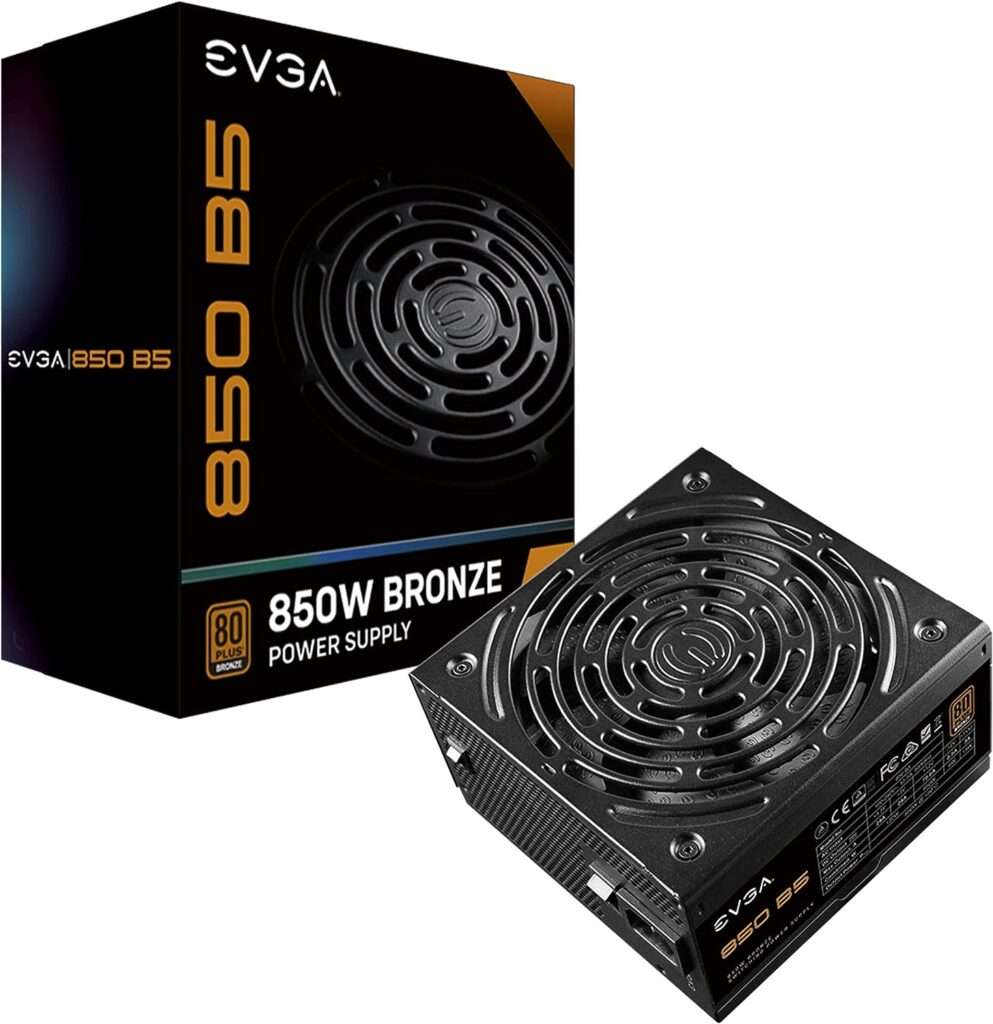
- Corsair RM750x, 80+ Gold: Although it’s slightly above your specified wattage, the Corsair RM750x is a high-quality power supply with 80+ Gold efficiency. It provides 750W and is known for its excellent build quality and reliability.
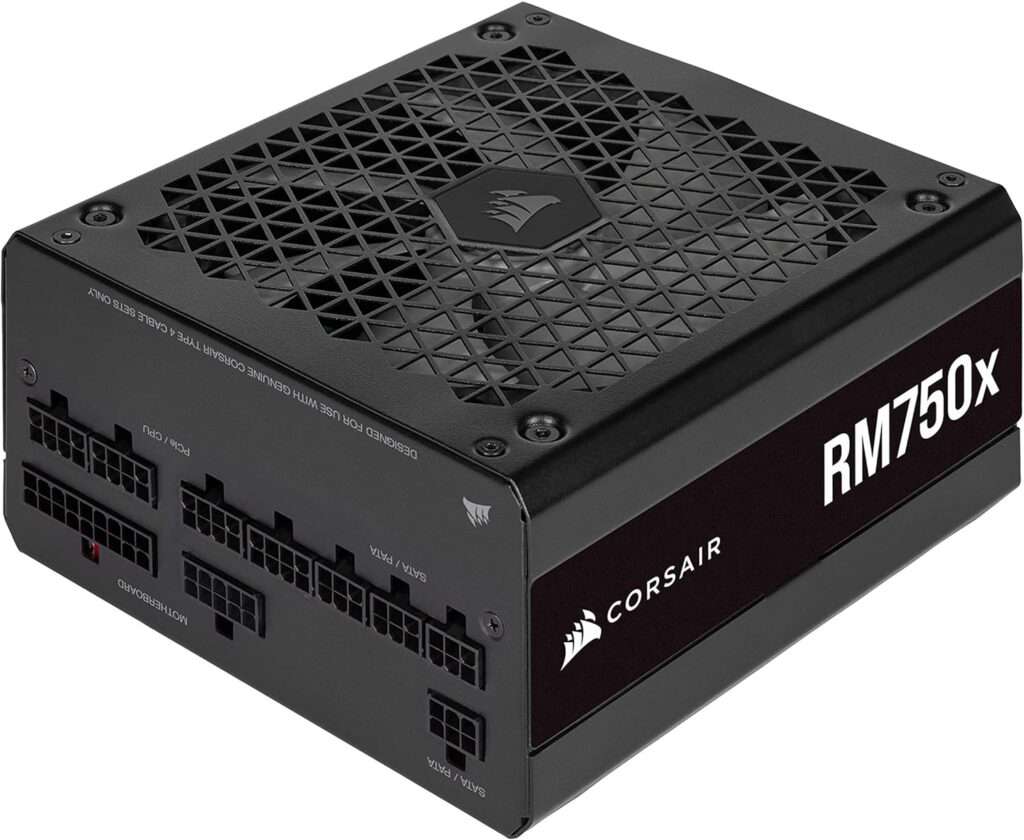
- Seasonic Focus GX-850, 80+ Gold: Seasonic is a reputable PSU manufacturer, and the Focus GX-850 offers 850W of power with 80+ Gold certification. It’s known for its stability and comes with a 10-year warranty.
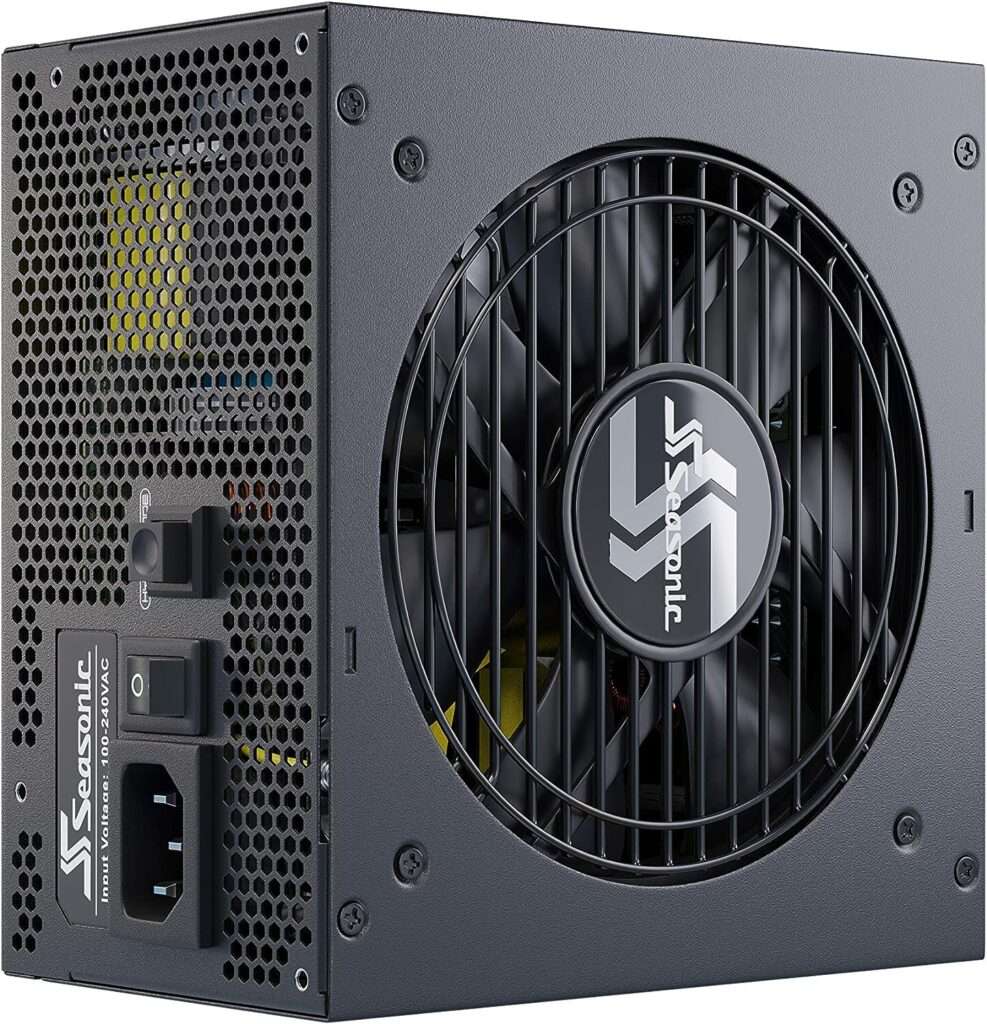
- Thermaltake Toughpower GF1 850W, 80+ Gold: The Thermaltake Toughpower GF1 is an 850W PSU with 80+ Gold certification. It’s designed for gamers and enthusiasts who need a reliable power supply.
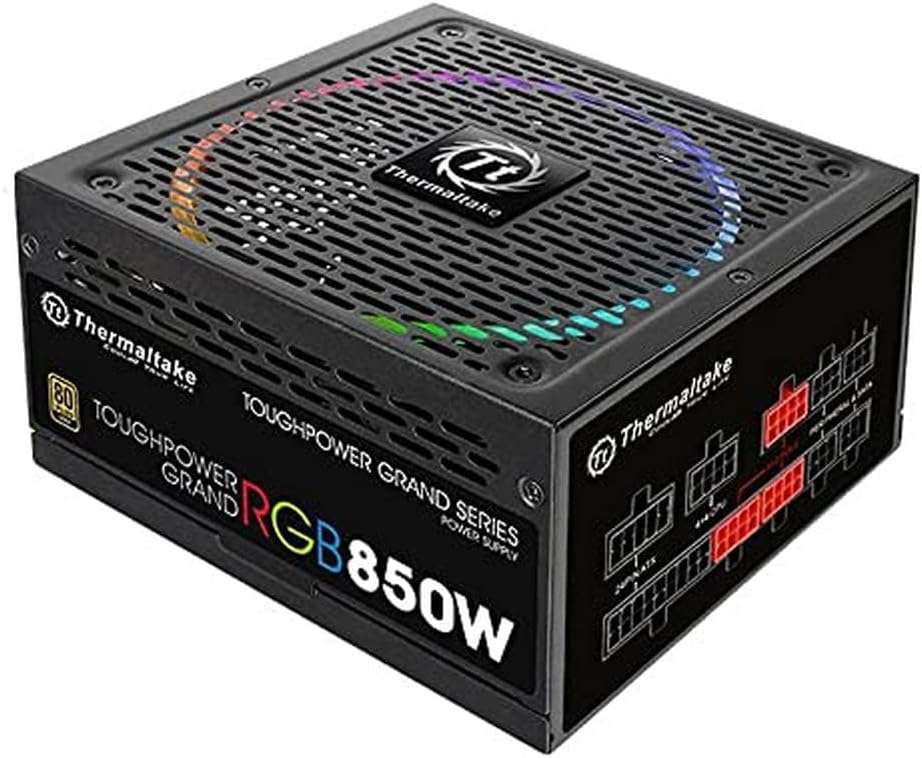
Recommendations:
- Minimum 750-850W PSU
- Components with 80+ Bronze Certification or higher
- Modular PSUs for better cable management
Read More: For Detailed Guide you can visit here.
Read More: Best Prebuilt Gaming Pc Under 500$
Read More: Best Prebuilt Gaming Pc Under 1000$
In conclusion, building a custom 4K PC can be a rewarding and satisfying experience, allowing you to create a high-performance machine tailored to your specific needs. Throughout this step-by-step guide, we’ve outlined the key considerations and provided a clear roadmap for the entire process.
Starting with thorough planning and component selection, we emphasized the importance of compatibility, quality, and future-proofing. Assembling the PC, from seating the CPU and GPU to connecting power cables and ensuring proper cooling, demands attention to detail and patience.
The process continues with the installation of the operating system and drivers, enabling your PC to run smoothly and efficiently. We also discussed the significance of cable management, not only for aesthetics but also to maintain optimal airflow and cooling.
Finally, we highlighted the necessity of regular updates, maintenance, and backups to keep your 4K PC performing at its best over time.
By following this comprehensive guide, you’re well-equipped to embark on your journey to build a custom 4K PC, unlocking the potential for stunning visuals and high-performance computing in your gaming, content creation, or any other demanding tasks you have in mind. Building a 4K PC may seem like a daunting task, but with the right approach and the knowledge gained from this guide, you’ll be well on your way to enjoying the power and beauty of 4K computing.
Remember, always keep your requirements in mind and never shy away from seeking advice or checking out community forums.
Leave a Reply